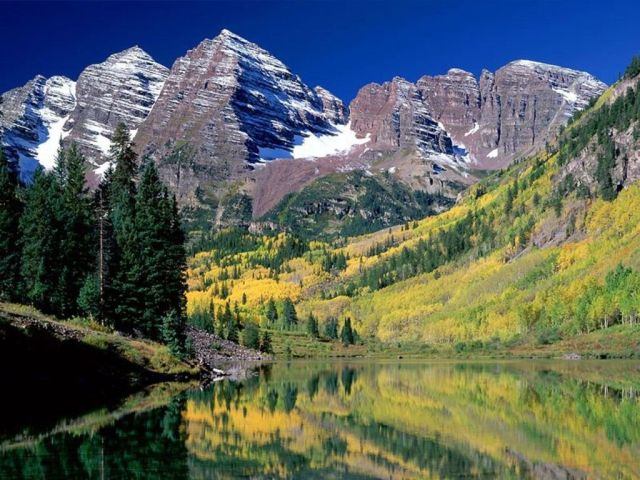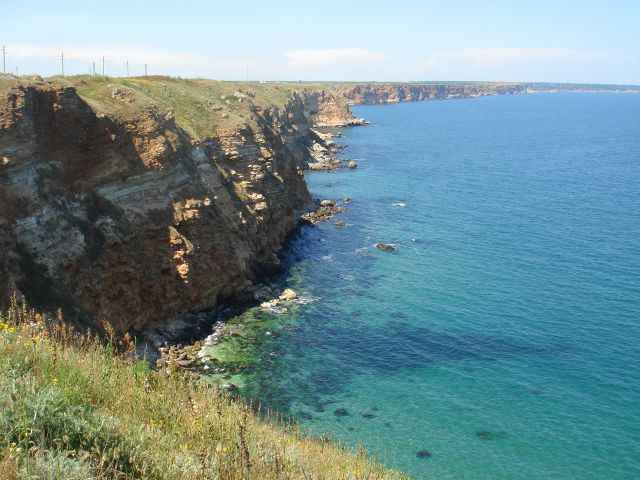Why Bulgaria
- on 08.01.08
- Bulgarian properties articles
- No Comments
Before you embark on your voyage you will need to ask yourself some questions about your motivation for buying abroad. Many people buy in Bulgaria for romantic reasons; for others it is an entirely practical decision. This first chapter explores the reasons people come to Bulgaria to buy property. It also gives a brief outline of the history of the country and its people, which is not an entirely academic exercise but should help you to understand the character of the regions and the property market itself. The second part of the chapter gives an overview of basic information about visas, permits, taxes and other relevant matters concerning residency.
The eminent historian Professor Richard Crampton of Oxford University begins his Concise History of Bulgaria (2006) sitting in the arrivals lounge at Varna airport in the early 1990s. He records the arrival of a plane from the UK bringing British workers for the new Rover car plant, set up after the collapse of Communism.Why wasthis relevant? Because, atthattime.thearrival of British workers into the former Communist country was a milestone in Bulgarian hi story. Ten years later, the present-day visitor to Varna airport would witness a new wave of British people – not car workers (the Rover plant lasted only five years) but the British house-buyer.

It is said now that every plane arriving from the UK to Bulgaria carries at least one person whose visit relates to purchasing property. The start of this phenomenon dates back to 2001, when Channel 4’s A Place in the Sun team arrived to make the first episode of the programme along Bulgaria’s undiscovered Black Sea coast. Since then the growth has been exponential: it is estimated that since 2001 around 30,000 properties have been purchased in Bulgaria by Brits. Bulgaria is now firmly entrenched in the British consciousness as a place for buying property, and as a destination for holidays. As the domestic economy grows, the country also provides opportunities for investment not available in western Europe. Its low prices mean that it provides the first step on the property ladder for some people, and in a globalised world -especially now that Bulgaria is in the EU – the prospect of buying in Bulgaria is no more daunting to many than buying in Blackpool or Brighton.
There are many reasons for buying in Bulgaria, but nine good ones are:
β’Β its tourism potential
β’Β its location
β’Β its EU membership
β’Β for investment
β’Β its climate
β’Β its landscape
β’Β its low property pricesβ’Β its low cost of living
β’Β the hospitality of local people
We can explore some of these as we go on a journey through the country.
Landscape and Pace of Life
Bulgaria is a place of extraordinary beauty. The country provides nature, space and a richness of flora and fauna, which are sadly increasingly rare in our crowded island. Whether it is the rolling hills of the Danube valley, the mountain ranges covered with meadows providing pastures for flocks of sheep or the sandy coastline of the Black Sea, most visitors are struck by the natural beauty of Bulgaria. The weather is another draw. People enjoy long, hot summers and cold, snowy winters, which are perfect for the combination of beach, outdoor life and winter skiing or even hibernation.
Imagine a country the size of England and Wales but with only seven million people (rather than 60 million). Bulgaria provides people with space to live in and to enjoy, to breathe and feel free of a constrained and crowded (and horribly expensive) island. During the Communist era, Bulgaria was considered the market garden of the Eastern Bloc, famous for its orchards, fruits, vineyards and wine, and for a host of agricultural activities. First-time visitors are struck by howthe use of donkeys and carts remains common in rural areas. The countryside presents a pattern of life redolent of Britain in the 1950s. On a fine spring day, an upland meadow in the lush woodlands of the Stara Planina mountains is one of the best places in the world. Imagine the air heavy with the scent of fresh grass, the gentle clink of bells of a nearby herd of goats, a stunning deep blue sky and floating white cloud…the sense that whatever you had to do today…can be done tomorrow.
One of the most common cliches about Bulgaria is that things move slowly, but this is not absolutely true. In the capital, Sofia, the pace of work and commerce is not much different from any other European capital such as London or Rome. It is outside the major cities that life does move at a slower pace – and it is to such areas that the vast majority of buyers are heading. It is possible to come to Bulgaria, say, for a week’s skiing or for a beach holiday, and not lack any modern facility you would find anywhere in the world – and at the same time it is possible to get away from everything, and perhaps to start a new business, or start over again, if that’s what you want to do.
The People
The friendliness of the Bulgarian people is legendary, if not widely known in western Europe. In this small and largely rural country, the habits of the Bulgarians include a natural openness, courtesy and an interest in visitors. You will be struck by the friendliness with which the locals treat strangers. In the countryside people normally salute as you pass, especially if you are on foot or bicycle, though not if you are in a car. Social life has a high premium placed on it. Bulgarians have a tremendous sense of fun, and are always looking for opportunities to celebrate – whether a birthday, a saint’s day (or’name’ day), a house-warming, or the host of other festivals and holidays throughout the year (there are three independence holidays). People are very warm, but not intrusive. Anyone buying a village property is likely to be overwhelmed by well-meaning visits from neighbours bearing gifts of home-made cheese, jam, home-grown vegetables and local wine.
The Weather
Bulgaria has long, hot summers, providing ample opportunity for sitting outside around a long table with family and friends, starting at lunchtime and ending late in the evening. With temperatures reaching 40Β°C in July and August, many of the locals take time to get away to the mountains or the sea, where summer temperatures are cooler. Otherwise the climate provides for long summers from May until October. Winters can be bitterly cold, with several feet of snow, except along the coast, because of the warming effect of the sea. The snow is very atmospheric and winter is a good time for taking it easy and making the most of the log fire and skiing seasons.Take care to try and find your wood from sustainable wood supplies, as Bulgaria has seen a tremendous amount of illegal logging in recent years.
For further information on climate, visit the Bulgarian National Institute of Meteorology and Hydrology website at www.meteo.bg. For short-term forecasts for Bulgarian cities, see www.bbc.co.uk/weather or www.cnn.com/weather.
Cultural and Economic Links with Britain.

Britain enjoys a positive image in Bulgaria. Once people know you are from Britain they will be welcoming. Locals will generally be interested to know where you are from, which football team you support, and your opinion of Bulgaria. As an eastern, Christian Orthodox country, Bulgaria has enjoyed close links with its eastern neighbours and indeed with Germany, which is its nearest major European power. It has long historical and ethnic ties to Russia, and as a former part of the Ottoman Empire has a long-established Turkish minority.
However, despite being at opposite ends of Europe, Britain and Bulgaria have shared a number of similarities and cultural links throughout history. Visitors to Sofia will note a central city street named after British prime minister Gladstone, who in the 1870s was a strong supporter of Bulgarian independence from Ottoman rule. Across from the Royal Palace is another street – James Bourchier – named after a Scottish correspondent for The Times who lived in Sofia for many years. His graphic articles recorded the turbulent days of the Liberation in the last part of the 19th century – often with great sympathy towards the Bulgarians. As a convert to the Bulgarian cause he is now buried in the Rila Monastery, one of the country’s most sacred sites. Before Liberation, Britain, as a major world power, enjoyed economic ties with the region. In the 1860s the British built and ran the first railway line from the Danube port of Rousse to Varna on the Black Sea Coast. The British consul based in Rousse at the time records dozens of British expatriates living and working in the towns along the Danube-many employed by the railway or in shipping.The collection of steam trains made in Manchester in the 1860s and lovingly restored at the National Rail Museum in Rousse bears witness to this.
Although Bulgaria sided with Germany during the two world wars, in the second, an anti-Fascist partisan movement operated behind Nazi lines with British support. Evidence of this is seen in the train station to the north of Sofia named ‘Major FrankThompson’ after the Oxford-educated British Special Forces officer who worked alongside Bulgarian partisans in the Second World War. He was later betrayed, captured and executed by the Nazis. He also happens to be the brother of the well-known historian E.P.Thompson.
More recently the range of contacts between this former Communist country and Britain has increased and grown from strength to strength. A large new British Council centre was opened in 2002, providing a visible symbol of cultural exchange between the two countries. It contains a library and educational facilities to support and encourage English-language teaching throughout Bulgaria. Nearby, a new British embassy was opened by HRH the Duke of York in 2001.The i930s-designed British ambassador’s residence is the finest house in Sofia and hosts one of the top social events in Bulgaria -the annual Queen’s Birthday Party. HRH Prince Charles has paid a number of visits to the country, and is known to be appreciative of its architecture, nature and wildlife.
Bulgaria’s own former king, Simeon II, returned in 2001 to become prime minister-as a Saxe-Coburg he is related to Britain’s royal family through Queen Victoria. His cabinet was made up of several Bulgarians who had worked in London in the 1990s and held senior positions in the City of London.
Cultural ties increase as people move between the countries. As an ever-increasing tide of people from Britain moves to Bulgaria, and vice versa (there are estimates of 30,000 Bulgarians living in London), there will be greater understanding between the two countries. Young Bulgarians speak English and are western in outlook and attitude, so you will mix in with them quite easily. Many Bulgarians support both a local and an English football team-and bands and artists such as Depeche Mode and Sting enjoy legendary status.
Lastly, as an EU member state, Bulgaria will continue to be a major trading partner with the UK. British businesses have invested heavily in Bulgarian industry in recent years – mainly in property and the tourism business, but also in agriculture, manufacturing and food processing. And because both countries are EU members, Britain will continue to enjoy Bulgaria’s wonderful wines at a reasonable cost.
Leave a Reply
You must be logged in to post a comment.